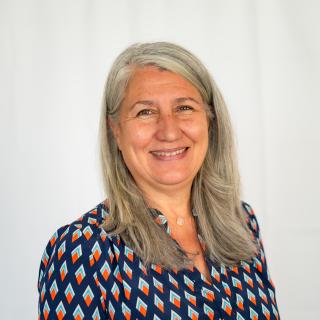Better Together
March 16, 2017
When I first started out as a classroom teacher, I remember feeling isolated because of the minimal contact I had with my colleagues. Eventually, I found my way to a school where I had a mentor, collaborative teaching sessions, and professional development. Had I not found that opportunity to ask questions, brainstorm solutions, and learn from some incredible early learning educators, I might have left the profession.
Even as a young teacher, I recognized the value in tapping the knowledge and experience of my colleagues. Collaboration is now recognized as a key element of education success, expanding horizons, enriching perspectives and encouraging innovation. Educators love to learn and collaboration enables us to benefit from (someone else’s) experience. This new Center on Enhancing Early Learning Outcomes newsletter, Impact, focuses on collaboration and how sharing expertise and talents leads to better outcomes for children, families and educators.
Throughout my career from a classroom teacher to a state policymaker, I was most successful when connecting to peers through technical assistance opportunities and ongoing conversations with peers in institutions or organizations doing similar work so we could share successes and challenges.
As Hawaii’s Director of the Executive Office on Early Learning, I struggled with designing and implementing a brand new, state-funded pre-K program while working within the state’s complicated mixed delivery system. Within the state, I had wonderful colleagues, but no one else had jurisdiction or understood the specifics of overseeing early childhood education. Once again, I needed a support system–but on a much larger scale than a classroom.
Attending a CEELO Roundtable, I found colleagues who understood what I was facing and who became valuable “thought partners.” I was able to ask my silly questions, and learn new questions that I hadn’t even thought to ask. Connections I had made at the Roundtable were fostered and conversations continued thanks to the CEELO team. CEELO Director Lori Connors-Tadros was my state’s lead TA and she facilitated conversations with people who were facing similar challenges in their states. She also shared current, research-based resources that I could present to legislators and other early childhood stakeholders, something I desperately needed but did not have time to find or create.
Now, as part of the CEELO team, I strive to share experiences and relationships with other state early childhood leaders, and continue to learn from other state education leaders and advocates. In Oklahoma and Louisiana, I have seen how strong partnerships between state officials and advocates enhance opportunities for children and families.
Indeed, while both the research on collaboration and collective impact is clear, common sense also dictates that no one can navigate and understand early learning systems alone–there simply is too much to do and not enough time.
CEELO builds collaboration by assigning each state a designated Technical Assistance lead and by working as a team to meet state TA needs. For example, while Lori is the TA lead for Oklahoma, I also have expertise regarding kindergarten entry assessments (KEAs) through my work in Hawaii and regular conversations with the national Center on Standards and Assessment Implementation. So when Oklahoma had a question related to KEAs, I was happy to research the current state of KEAs and identify possible states and contacts who might provide insight to Oklahoma. This information, coupled with the KEA research and coordinated conversations with other states, provided opportunities for Oklahoma policymakers to quickly receive relevant responses to their questions, better informing the decisions they need to make.
Collaboration also can be daunting, challenging us to share information with those outside our usual circle. Yet the rewards outweigh the risks. If we want to create a robust early learning system for all children, we need to share not only great ideas and strategies for implementing them but also mistakes made and how to avoid them. CEELO’s mission focuses on enhancing and encouraging meaningful collaborations that help you improve education outcomes.
GG Weisenfeld is an Assistant Research Professor at NIEER. Dr. Weisenfeld works on the State of Preschool Yearbook and as an education consultant researching and offering technical assistance on designing and implementing early childhood policies and programs.
The Authors
GG Weisenfeld is a Senior ECE Policy Specialist at the National Institute for Early Education Research (NIEER) at Rutgers University, Graduate School of Education.
About NIEER
The National Institute for Early Education Research (NIEER) at the Graduate School of Education, Rutgers University, New Brunswick, NJ, conducts and disseminates independent research and analysis to inform early childhood education policy.

